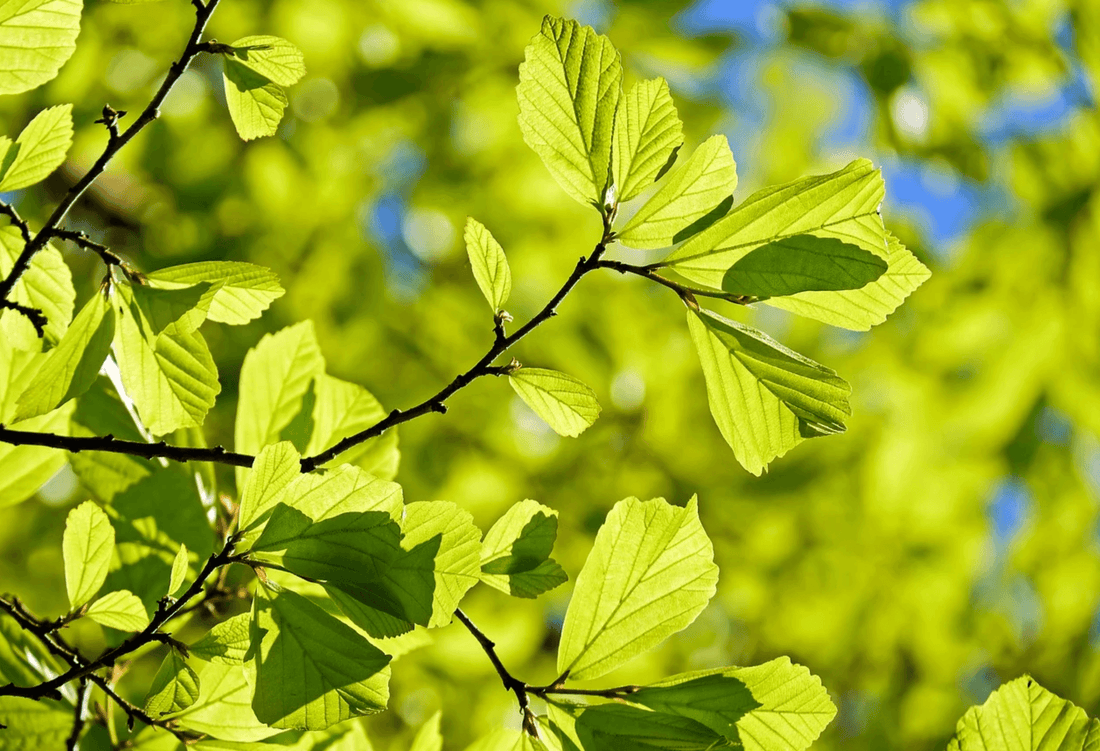Life on Earth is only possible because there is an oxygen envelope around the planet. But our atmosphere is anything but self-evident. Oxygen is, after all, permanently consumed. So who makes sure that we don't run out of air?
Life on Earth is only possible because there is an oxygen envelope around the planet. But our atmosphere is anything but self-evident. Oxygen is, after all, permanently consumed. So who makes sure that we don't run out of air?
Without trees we would soon run out of oxygen
Exactly - trees, forests and plants in general. They are not only a biotope in which humans, animals and other plants thrive, but also ensure the production of oxygen in daily hard work. At the same time, they remove pollutants from the atmosphere by bindingCO2 . This happens through the process of photosynthesis.
What is photosynthesis?
The process of photosynthesis is carried out by plants, but especially also by algae, plankton and some bacteria. Photosynthesis converts light into chemical energy to eventually create a nutrient-rich substance - glucose. The key factor in photosynthesis is chlorophyll, also called leaf green. The pigment plays an important role in the absorption and conversion of light.
Since chlorophyll is found in the leaves or needles of trees and plants, photosynthesis takes place in these green parts. The bound and transformed light is needed to incorporateCO2 into the process of glucose production. The harmful carbon dioxide is extracted from the environment; conversely, the plant releases oxygen during photosynthesis as a "waste product", so to speak. For the tree, the process is ultimately a means of generating nutrients. It needs the glucose to convert it later into starch and thus obtain nutrients.
Power for Oxygen: This is how much oxygen a single tree produces
It is amazing how much oxygen a single tree can produce. Depending on their size, and of course the amount of sunlight, trees can produce the breathable air for 10 to 50 people. Even when young, a single tree binds 5-6 tonnes of carbon dioxide annually! In addition, trees filter dust and other pollutants from the air. That is why breathing in the forest is so good for us. Trees provide this service in abundance, and without us having to take special care of them - on the contrary, it is good for most forests if humans hold back on intervening in nature.
Where does photosynthesis take place on a very large scale?
Once you understand how abundant and reliable the oxygen production of plants is, the importance of forests becomes all the more obvious. But it is not the forests on land that are the greatest producers of oxygen.
The phytoplankton floating in the oceans also carry out photosynthesis. Researchers estimate that the tiny cells bind at least as muchCO2 as all the plants on the Earth's land mass - possibly even more. An estimated 50 billion tonnes of carbon dioxide are removed from the atmosphere every year by the "forest under the sea" alone and converted into oxygen. In addition to binding sinking carbon dioxide in the depths of the oceans, the plant plankton ensures an immense exchange ofCO2 and oxygen in the bright, sunny upper areas of the oceans - according to some scientists, the entire atmosphere is renewed all around here every six years.
Amazing chemical performance
So not only the impressive tree giants of tropical forests, but also the barely visible suspended matter in the oceans continue to give us a breath of fresh air. To keep it that way, we need to help ensure that our forests are valued, protected and reforested where necessary. Through our partnership with the OneTreePlanted organisation, we at NIKIN are helping to ensure that the world's forests continue to produce oxygen through photosynthesis for our children and grandchildren - and you can make your contribution too!























